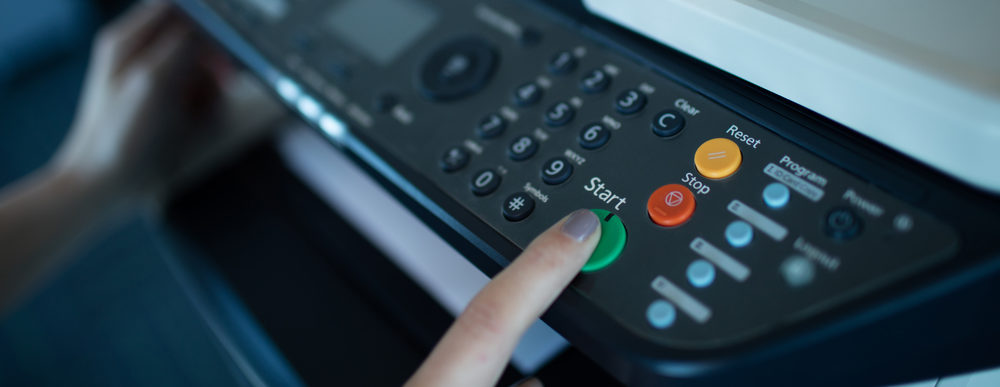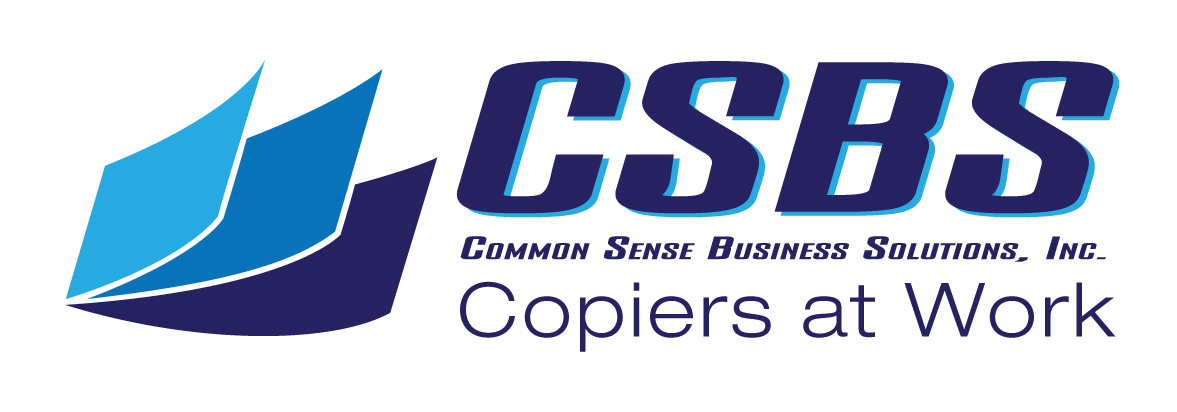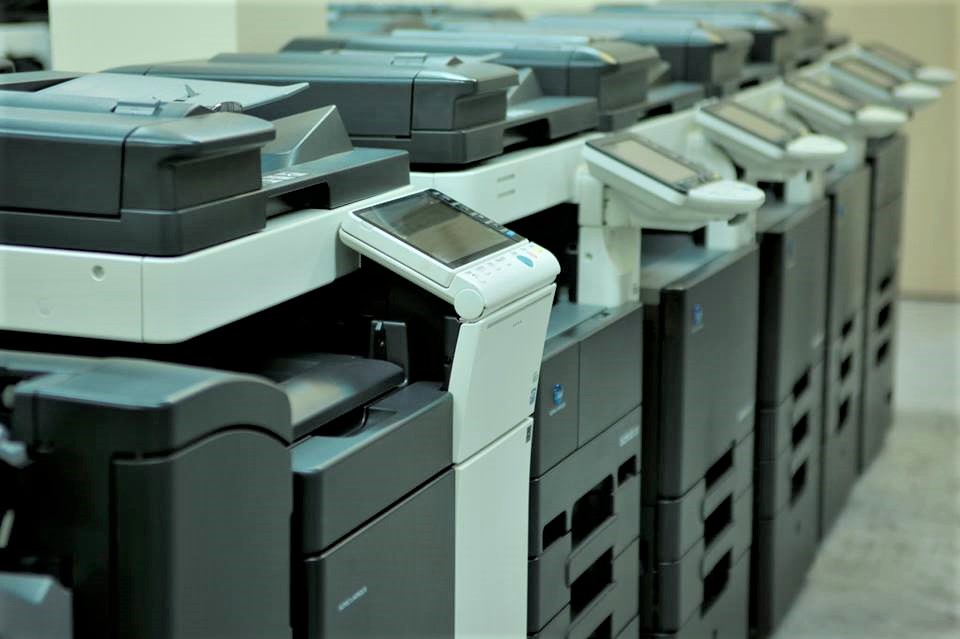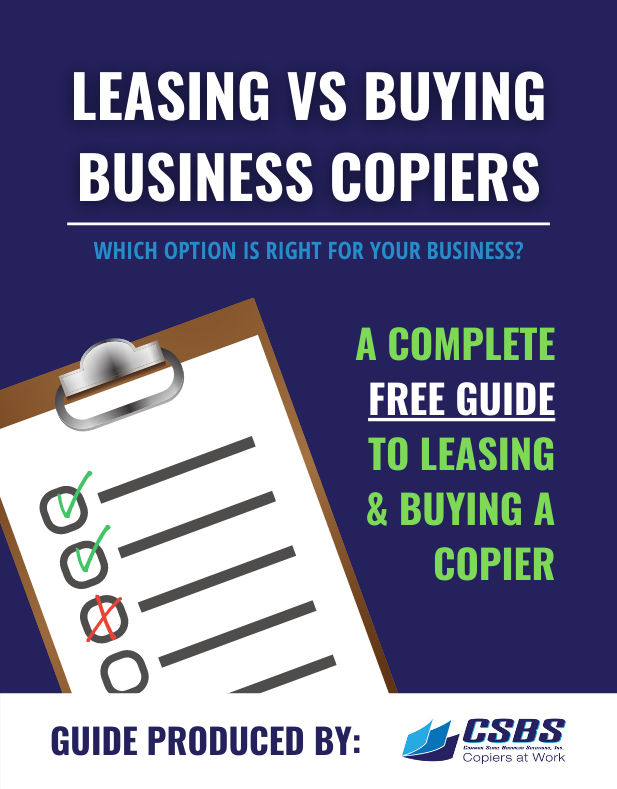For Some Businesses, it is the Right Choice
Many businesses opt to lease a digital copier because the upfront expense is minimal.
Back in the ’80s and ’90s, the ratio of buy vs lease was about 50/50.
Today about 80% of businesses, medical practices, and schools (public and private, K-12) as well as universities lease their copiers.
Previous posts have delineated many of the ways in which a copier lease can make sense for your organization. For the majority of companies, this path is the correct one.
But it is not the only one.
In the interest of fairness, and supplying our customers with all the possible options to best help them find the ideal solution for their individual business, let’s look at the other side of the coin – the positive aspects of buying your digital copier outright.
Buying a digital printer or Multifunction Printer (MFP) can be less expensive over the long-term life of the device, so for some companies, this option is preferable to signing a copier lease.
There are online equipment lease vs buy calculators available to help you with your decision. You should get price quotes for both leasing and buying a copier and then use these calculators to weigh your options. Here are two popular calculators:
See our Lease Vs Buy Analysis!
The 7 Upsides of Buying a Copier Outright
There are plenty of upsides for buying a copier and avoiding a lease altogether. Here are a few of the reasons:
1. Cheaper in the long run
Buying is always cheaper than leasing in the long term because you avoid finance charges. Think of it much like buying a car: You can save thousands of dollars by paying cash upfront and avoiding interest.
2. No Monthly Payments
When you purchase a copier outright one of the benefits is that you have one less monthly invoice and monthly payment to process.
3. Flexibility to make changes
When you own a copier you can opt to trade in your existing copier and use the trade-in value to offset the cost of an updated machine. When leasing, however, there is often a monetary penalty for early termination.
4. Less paperwork
Buying a copier is relatively straightforward. Just hand over the cash and the deal is done. Leasing involves an application process and providing the leasing company with detailed financial information. Your company will also be subject to a credit check.
5. Eliminate the cost of shipping the copier back
Many companies are unaware that at the end of the lease term they are responsible to pay for the shipment of the copier back to the lease company that routinely can cost $400.00 to $800.00 or more. When purchasing a copier, of course, you eliminate that recurring cost.
6. Extend the useful life of your copier after your initial purchase
Depending on the make and model of digital copier you purchase, the effective life of the machine can last several years beyond the length of a standard lease, which means it can possibly perform for your business for years without costing you anything but consumables.
7. Tax-deductible
The entire cost of a new equipment purchase is tax-deductible. With a lease, you can only deduct the total amount of the monthly payments for that year.
In many circumstances, a company can write off the entire purchase cost of a business copier in the year that it was purchased without having to depreciate it over the five-year depreciation schedule. Please consult with your CPA or tax professional regarding the viability of this option for your specific company.
Tax incentives under Section 179 of the IRS Tax Code are larger for purchasing office equipment but they have limits. If your equipment doesn’t qualify under Section 179, you may be able to leverage a depreciation deduction for the equipment you have purchased for your business.
The Downside of Leasing a Copier
With the pros, comes the cons. Here are some of the downsides of leasing a copier.
Higher long-term costs
A $5,500 copier could end up costing around $7,000 if you spread the payments over five years. You’ll pay more in the long run when you lease a copier instead of buying it outright.
Strict terms
It’s difficult to get out of a lease, even if your needs change. Once you sign the agreement, you’re stuck making the payments for the remainder of the term, even if the equipment is not being used.
You’ll also be required to adhere to the leasing company’s maintenance requirements, which can get expensive.
Who Owns the Copier?

Technically, in a lease, the copier is still owned by the dealer or company that issued the lease contract.
A lot of times the company that offers you the copier holds the lease, but oftentimes it’s the manufacturer or a third party who takes care of that.
In either case, you do not own the copier in a lease situation, and, in fact, you don’t ever own the copier until you buy it outright.
Some leases are structured such that you can buy out the machine at the end of the lease term while other contracts (typically rare) structure the lease so that the buyout amount at the end of the lease is $0.
But if you do not own the equipment you do not have the option to sell the MFP once you are finished with it, so there is no potential to make any of your money back.
What’s really important here, however, isn’t who owns the copier for the sake of ownership itself, it’s the tax implications of the fixed asset.
Many smaller businesses choose to operate with as little debt as possible. While a lease is not technically a debt for accounting purposes, many business owners and professionals consider it to be the same thing. If your business is flush with cash, or operating with grant money, buying a digital copier is often better in the long run than a copier lease.
How Much Cash Flow Do You Need?
Buying equipment affects the investing cash flow and operating cash flow sections of the cash flow statement:
- Purchasing equipment using cash is recorded as a cash outflow.
- If you choose to purchase equipment via a line of credit or small business loan, monthly principal payments would also affect investing cash flows. Be sure to account for the down payment amount which is typically required with this option.
- Insurance and maintenance costs would impact operating cash flows.
You can run scenario analyses to show how your cash flow would be impacted based on options to lease or purchase. The important takeaway here is to be able to anticipate upcoming events in your company’s growth journey.
It is important to the success of your enterprise that you choose wisely how to spend your available funds. But it is also important to remember that you are not alone, wrestling with the question of whether to buy or opt for a copier lease.
Give us a call, let Common Sense Business Solutions help you define your options, measure your needs, and make the ultimate choice between leasing, or buying the right multi-function printer for your business.



